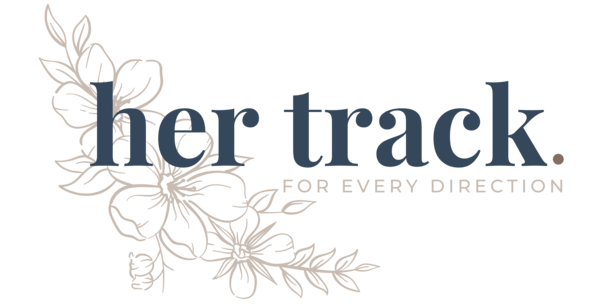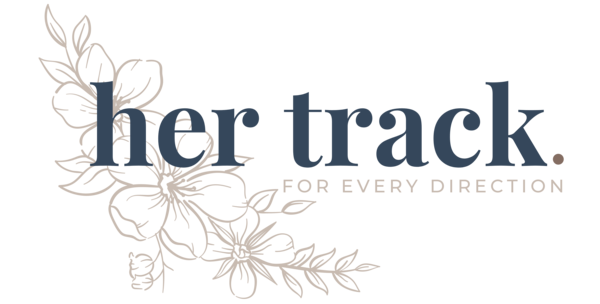“What would you say is your dream job?”
This was the first time I had been asked that question in an interview and it caught me completely off guard. I stared across the long boardroom table at the Vice President of my department and frantically searched for the right words. When applying for the promotion I was now being interviewed for, I had thought it was my dream job. So why was I struggling to answer the question?
I had spent the last four years working my tail off for this opportunity. I had moved to a strange city where I didn’t know anyone, lived in a studio apartment the size of my bedroom back home and worked multiple part-time jobs to scrape by while earning my Master’s degree. I gave up job security, financial security and my own personal sense of security for a chance to break into this industry. Now that I was here, why was I hesitating?
These questions kept me up at night for weeks after the interview was over.
Not only was I working in my chosen field, I had been with the organization for a little over a year and was treated incredibly well. I loved the people I worked with and enjoyed the office culture. We had fun at work, were given great benefits and were treated as equals by all levels of management. On paper it was my dream job, so why didn’t it feel that way?
When I found out I hadn’t received the promotion, I was disappointed. Surprisingly, I also felt a sense of relief. It was at this moment I realized I was no longer passionate about this line of work. I was content, but I no longer felt challenged or driven by my work. I wasn’t sure what to do but I knew something needed to change.
Without challenge, we can’t grow as individuals or realize our full potential.
1. Accept it.

This can be the hardest part. I felt like I’d failed on my dreams and was letting down everyone who had sacrificed to help me get to this point. How could I have worked this hard for something I didn’t even want anymore?
First of all, if you landed your dream job, congratulations! That’s a huge accomplishment in itself. Maybe it didn’t make you feel the way you thought it would and that’s okay. It’s also okay to change your mind and nobody should ever make you feel bad about that. The people that supported you in chasing your dreams will support you as you pursue the next one. Changing and growing is human nature and both help us discover more about ourselves.
2. Take some time off.

In the last few years, I have gone through some major life changes and been through some really tough times. I’m not the same person I was when I started grad school and I wasn’t sure how to figure out who this new version of me was. I already had a trip to Arizona planned and it turned out to be just what I needed to gain some new perspective.
If you can, take some time off, even if it’s only for a long weekend. Don’t check your work email, don’t check in with co-workers and try not to think about the office at all. Even if you’re thinking of a career change, don’t look at job postings or LinkedIn. Take this time to focus on yourself and reconnect with what makes you happy. If you like writing, try journaling. If you like crafting, make a vision board. This time should be devoted to reflection and freedom.
3. Explore new hobbies.

I felt frustrated, defeated, and lost. When I tried looking at job postings, I would get completely overwhelmed and shut down (see #2). I knew what I didn’t want to do but I had no idea what I did want to do. When I was in Arizona, I did a lot of hiking and found I absolutely loved it! Even before my trip was over, I started researching local places to hike back home.
Not all hobbies will lead you to a new career path. I’m certainly not going to be hiking for a living any time soon! I did, however, do some of my best thinking on those treks and found the challenge of hiking a mountain filled a void that my job wasn’t. Trying new hobbies will help you gain a better understanding of what type of activities you enjoy and which ones you find less than desirable. What is it about that hobby you find satisfying? If you enjoy drawing, it doesn’t mean you have to become an artist. Yet, looking into jobs where personal expression is a preferred qualification or researching careers in a creative environment would be a great place to start.
4. Discover what drives you.

In the past, I’ve had jobs that I hated. Who hasn’t?! I would wake up and dread going into the office. This time, I didn’t feel that way. I think this is why it took me so long to realize my job no longer aligned with my career aspirations. I never minded going in to work and sometimes I even enjoyed it. However, I didn’t feel fulfilled and being comfortable in my job wasn’t enough for me anymore. Upon deeper introspection, I realized I didn’t feel fulfilled because I wasn’t affecting change or making an impact on someone’s life.
Different people are motivated by different things. Try making a list of the top three things you are looking for in a job. Do you want to make a lot of money? Is helping others important to you? Do you like repetition or do you thrive on change and variety? Some careers might be focused on caring for or helping others but not pay as much. Other careers might pay well but require demanding hours or little room for creativity. Knowing what drives and motivates you will help you choose a career that you find personally fulfilling and meaningful.
5. Embrace it.

I still don’t know exactly what my next career path will be but that’s okay. I might even stay in the same industry but explore a different field. By stepping outside my comfort zone, I’ve rediscovered myself along the way. I’ve reignited a passion for writing, found a love of hiking, and recognized a need for both creativity and helping others.
Not having a plan can be terrifying but it can also be liberating. Remember when you were younger and adults asked you what you wanted to be when you grew up? The options were endless! At some point in our lives, we impose limits on ourselves and hold ourselves back. Discovering one job is no longer right for you opens you up all to the other ones that might be.
Not getting that promotion turned out to be a gift. I’ve learned that my dream job is no longer a specific position but an opportunity that allows me to help others and make a difference.
If you wake up one day and realize your dream job is no longer your dream, be open to the possibilities. Recognize it as an opportunity to reconnect with yourself and grow as both a young professional and a person. What you find could be greater than anything you’ve ever dreamed of.
For more career content, check out the articles below!
Lady Boss of the Month: Adriene Mishler on Cultivating a Thriving Yoga Community








